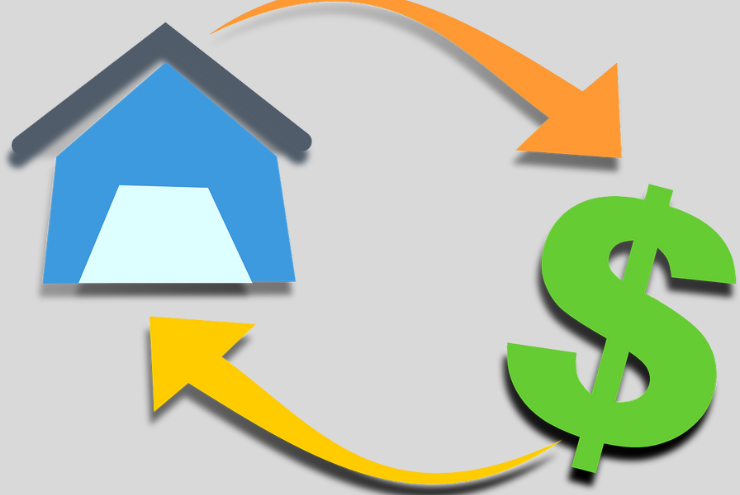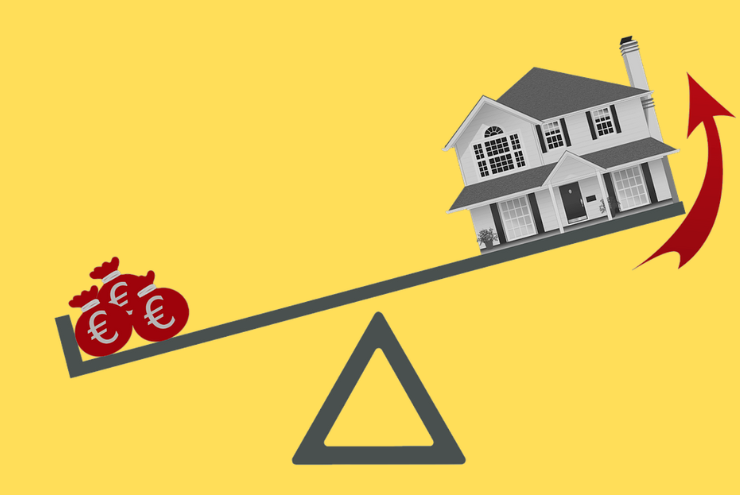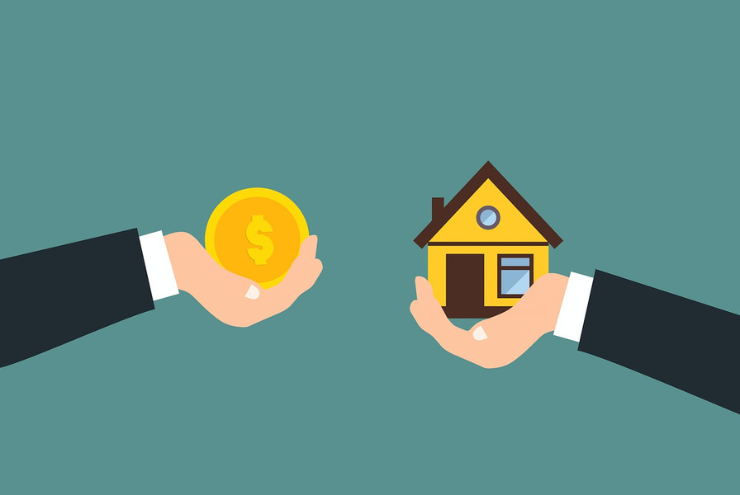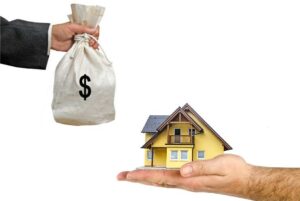Are you a homeowner looking for ways to maximize your home’s value? A reverse mortgage could be the answer that allows you to tap into some of the equity in your home, but navigating this process can seem daunting.
This post will look at if you can sell a house with a Reverse Mortgage. We’ll also offer tips on how to do so if it’s something you’d like to pursue. Read on for more information – even if selling your home isn’t part of your plans right now, knowing empowers you as a homeowner!
What is a Reverse Mortgage?

A reverse mortgage is a home loan that enables homeowners over 62 to access their home’s equity. The primary purpose of this loan is to provide seniors with additional funds during retirement. When you take out a reverse mortgage, you must only repay the money once you no longer live in the home or pass away.
The Difference In Selling A Home With A Reverse Mortgage?
The process of selling a home with a reverse mortgage is slightly different than when selling a home without one. With a regular mortgage, the homeowner will have to pay off their loan balance before they can sell.
However, if you have a reverse mortgage on your home, you’ll need to work with the lender to determine how much equity you can access and how much of the proceeds from the sale will be used to pay off your loan. The lender may also require that any remaining equity is paid to them, so it’s essential to keep this in mind when considering whether or not you should pursue a reverse mortgage.
Can You Sell a Home with a Reverse Mortgage?

Yes, you can sell a home with a reverse mortgage. Selling your home is one of the ways for you to repay the loan and close out your reverse mortgage balance. This process does require some extra steps, though.
Steps to selling a house with a reverse mortgage:
- Consult with your lender
- Find a real estate agent
- Price your home
- Prepare your home for sale
- Market the property
- Negotiate the offer
- Close the sale
- Repay your loan
- Collect your proceeds
- Move out
Consult with your lender
Before you put your home on the market, you must speak about repayment options. Your lender will help you understand how much you will need to repay upon closing the sale and how much of your proceeds you can keep.
Find a Real Estate Agent
Once you know what your lender expects from you, it’s time to hire a real estate agent. This is critical for ensuring that you get top dollar for your home. An experienced real estate agent can help you identify buyers and negotiate the best terms on your behalf.
Price Your Home
Your real estate agent can provide helpful insights when setting a price for your home. Doing so correctly is essential as you’ll need to consider current market trends and the amount you need to repay your reverse mortgage lender.
Prepare Your Home for Sale
It’s time to get to work preparing your home for sale. This can include minor repairs, sprucing up landscaping, and improving curb appeal. Letting potential buyers know that your home has been well-maintained will help make it more attractive.
Market the Property
Your real estate agent can help you market your property through various channels, such as listings on MLS and other websites, open houses, and direct mail campaigns.
Negotiate the Offer
When a buyer makes an offer on your home, your real estate agent can help you negotiate the best possible terms. Things to consider include the following:
- The price and closing costs.
- Contingencies.
- Other details that could affect the sale.
Close the Sale
Once all the paperwork is in order, it’s time to close the sale. During this process, you’ll need to make sure that all of the necessary funds are transferred so that you can repay your lender.
Repay Your Loan
Your lender will provide a payoff statement outlining the amount due at closing. Ensure all these funds have been transferred before signing off on the sale.
Collect Your Proceeds
Once the loan is paid off, you’ll be able to collect your proceeds from the sale. This money can be used for anything from down payment on another home to covering unexpected costs like medical bills or repairs.
Move Out
The last step is to move out of your home. Make sure you’ve done a thorough walk-through to check for any signs of damage and tie up any loose ends with the buyer before leaving.
What to Consider before selling a house with a reverse mortgage?

1. Taxes & Fees
You’ll need to know any taxes and fees applicable when selling a home with a reverse mortgage. Can you afford to pay them out of the proceeds?
2. Closing Costs
Closing costs can add up quickly, so it’s important to factor this into your budget before making any decisions.
3. Equity
If you have a reverse mortgage, you may only be able to keep some of the equity in your home. Make sure you know how much you’ll need to pay back before putting your home on the market, so there are no surprises later.
4. Repayment Terms
Make sure you understand your reverse mortgage’s repayment terms before signing any paperwork. Can you afford to make the payments? Can you negotiate better terms?
5. Timing
It’s essential to consider the timing when selling a home with a reverse mortgage. Can you wait for the best offer, or do you need to move quickly? Can you negotiate a more extended closing period?
6. Insurance
Make sure that you and the buyer have adequate insurance before signing any paperwork. Can your current policy cover the sale, or will you need to purchase new coverage?
7. Buyer Ability to Obtain Loan
Finally, double-check that the buyer can obtain a loan for your home. Can they qualify for financing? Can you help them in any way?
Advantages
1. Cash In Hand
Selling your home with a reverse mortgage can provide you with cash that can be used for any purpose. This money can help fund retirement, pay off debts, or even purchase another property.
2. Fast & Easy Process
Selling a home with a reverse mortgage is relatively fast and easy. Once you have your home listed, negotiating and closing can happen quickly.
3. Flexible Payment Options
Reverse mortgages offer flexible payment options that can help you maximize the value of your home. Can you negotiate a lump sum or choose to receive payments over time?
4. No Credit Check
Unlike other mortgage options, you won’t need to go through a credit check to sell your home with a reverse mortgage. Can this be beneficial in your situation?
5. Can Help Your Heirs
If you have a reverse mortgage, selling your home can help simplify matters for your heirs. Can they negotiate the loan payoff, or would it be easier to sell the house?
6. Can Lower Interest Rate
Selling your home with a reverse mortgage can help you lower the interest rate on your loan, which could save you money in the long run. Can you negotiate a better rate?
7. Can Reduce Monthly Payment
Selling your home with a reverse mortgage can also reduce your monthly payment, freeing up funds for other purposes. Can you make use of this extra money?
8. Can Help Your Credit
Finally, selling your home with a reverse mortgage can help improve your credit score. Can you take advantage of this opportunity?
9. Can Help You Move On
Selling your home with a reverse mortgage can help you move on from this stage in life. Can you get closure and start anew?
10. Can Help You Achieve Financial Goals
Selling your home with a reverse mortgage can help you achieve your financial goals. Can you use this opportunity to set yourself up for success?
Disadvantages
1. Can Be Expensive
Selling your home with a reverse mortgage can be expensive. Can you afford this process’s taxes, fees, and closing costs?
2. Can Impact Credit Score
Selling your home with a reverse mortgage could impact your credit score. Can you keep up with payments to avoid any adverse effects?
3. Can Impact Heirs
If you have heirs, selling your home with a reverse mortgage could affect their inheritance. Can they negotiate the loan payoff, or would it be better to keep the house in the family?
4. Can Have Restrictions
Reverse mortgages can come with restrictions limiting your ability to utilize the funds fully. Can you negotiate better terms?
5. Can Be Complicated
Selling a home with a reverse mortgage can be complicated and confusing. Can you take advantage of professional assistance or look for educational resources?
6. Can Have Unforeseen Expenses
When selling your home with a reverse mortgage, there may be hidden costs and expenses you weren’t aware of. Can you anticipate what these might be and plan accordingly?
7. Can Take Time
Selling your home with a reverse mortgage can take some time. Can you afford to wait while the process is completed?
8. Can Limit Your Options
Selling your home with a reverse mortgage can limit your options if you plan to purchase another property. Can you negotiate better terms?
9. Can Involve Extra Fees
You may be subject to extra fees when selling your home with a reverse mortgage. Can you negotiate these costs or find ways to reduce them?
10. Can Have Negative Tax Implications
Selling your home with a reverse mortgage can have negative tax implications. Can you anticipate the potential impact on your finances?
Skip All of the Hassle with Home Front
Looking for a hassle-free and speedy way to sell your house? Look no further than Home Front! We specialize in buying properties in any condition and offering a fair cash price in 12 hours or less.
That’s right, you could have the deal of a lifetime within a day! Even if your home has a reverse mortgage on it, Home Front can still make you an all-cash offer and take care of all the legal stuff so you can focus on your next move.

With Home Front, you can bypass the headache of working with an agent, avoid paying an agent’s fees, and skip the stress of getting your house ready for sale or talking to potential buyers. It’s like waving a magic wand and making your house-selling troubles disappear!
Selling your home can be stressful, but thanks to Home Front, you can skip all the uncertainty and anxiety of waiting and praying for your home to sell. So why wait? Trust Home Front to get the job done quickly, efficiently, and with your best interests in mind.
Conclusion
When selling your home with a reverse mortgage, both advantages and disadvantages must be weighed. Can you make an informed decision about whether or not this is the right option for you? Knowing how the process works and its potential implications, you can ensure that whatever path you choose will best meet your needs.
HomeFront can help you gain the insight and understanding needed to make the right decision. Contact us today to learn more about reverse mortgages and how we can help.
FAQs
Can I sell my house with a reverse mortgage?
Yes, you can. This process is known as a “reverse mortgage loan” and involves borrowing funds against the value of your home. You will need to contact an experienced real estate attorney to help you through the process.
Who are the typical lenders for reverse mortgages?
The most common lenders for reverse mortgages are the Federal Housing Administration (FHA) and Home Equity Conversion Mortgage (HECM).
What is involved in the process of getting a reverse mortgage?
The process involves obtaining an appraised value of your home, along with mortgage insurance, to ensure that your non recourse loan is. You will also need to negotiate a loan balance with the lender and ensure you can keep up with repayments to avoid any adverse effects on your credit score.
What should I consider before getting a reverse mortgage?
Before getting a reverse mortgage, consider your current financial situation. Do you have enough extra income each month to be able to keep up with the loan payments? Additionally, consider whether it would make more sense for you to move into an assisted living facility or negotiate a loan reverse mortgage payoff to keep the house in the family.
Are there restrictions associated with reverse mortgages?
Yes, there are restrictions on how much you can borrow and how the loan is used. Additionally, the loan may have a maximum term of fifteen years if it is not paid off sooner. Understanding all of the terms associated with a reverse mortgage is essential before agreeing to any contract.
What if I need to make changes to the loan agreement?
You can constantly renegotiate the terms of your reverse mortgage. However, consulting with a knowledgeable real estate attorney before making any changes is essential. Additionally, you may have to pay additional fees or interest to make adjustments.
What happens at the end of the loan term?
At the end of the loan term, you will need to repay the balance of your reverse mortgage. Depending on your situation, you can apply for a traditional mortgage or other forms of financing to pay off the loan. Otherwise, you will have to use funds from other sources or sell the house to repay the lender.







